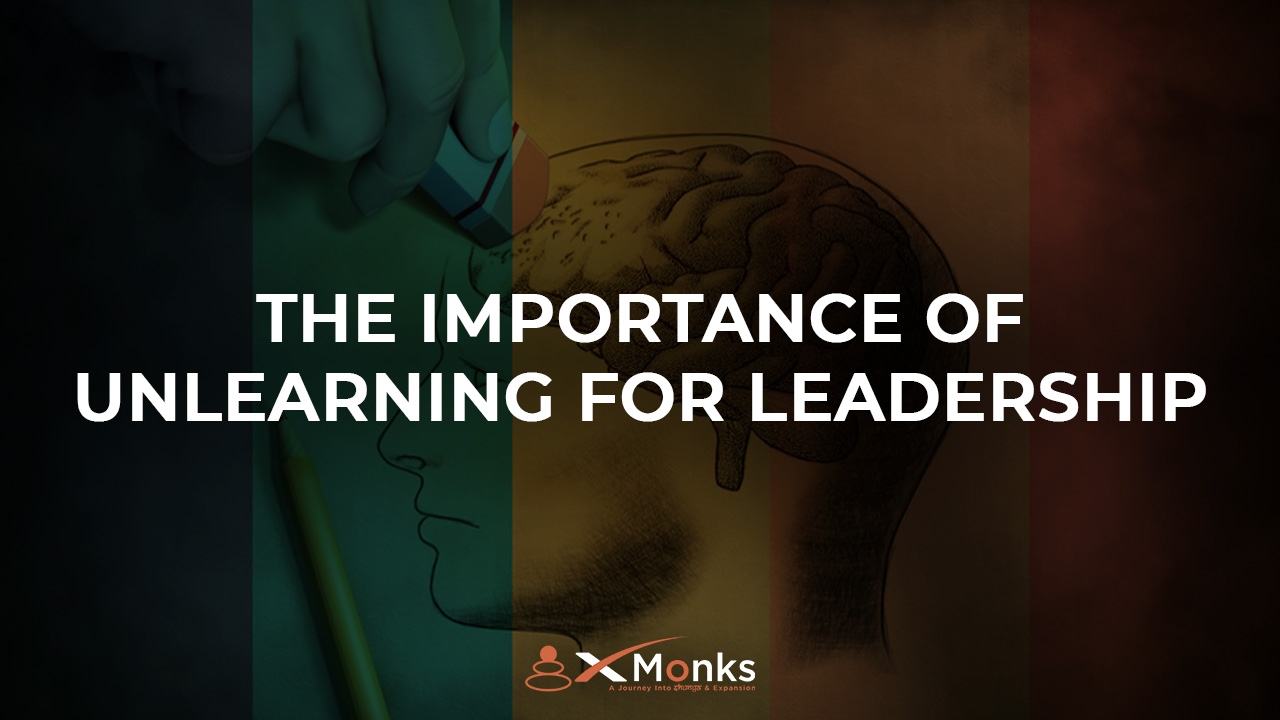The Importance of Unlearning for Leadership
Author: Team xMonks | Published on: Thu, 30 May 2024 05:18:39 +0000

History is littered with personal and corporate examples of those whose failure to read the future proved costly and, in some cases, fatal. We cling to our old ideas and beliefs because they worked for us before, even when they are shown to be wrong or irrelevant in today’s world.
Eric Hoffer, an American moral and social philosopher, said, “In times of change, learners inherit the earth, while the learned find themselves beautifully equipped to deal with a world that no longer exists.”
This rings true, especially for leaders responsible for their company’s direction. Stubbornness and unwillingness to learn often masquerade as confidence and decisiveness, but in reality, they uphold outdated ideas.
As seen in previous blogs, continuous learning alleviates mental inertia. However, our brain has finite capacity. So, what do we do with all the knowledge gained? We unlearn it.
Unlearning is NOT the same as forgetting. It means letting go of old ideas and behaviors to make space for new ones. This ability is crucial for leaders as it allows them to adapt to new opportunities and challenges. Unlearning enables relearning when necessary, similar to backing up data rather than deleting it permanently.
Simply put, unlearning is challenging. Our brains cling to familiar patterns, resisting change. The path of least resistance often reinforces our usual ways, making us reluctant to shift from what has worked in the past. However, neuroscience confirms that unlearning is key to success.
By breaking old habits and thought patterns, we create new neural pathways, expanding our capacity for innovation. This is especially crucial in boardrooms, where challenges arise rapidly and innovative solutions are needed just as fast.
Unlearning is difficult because we often remain unaware of our mental models and behavioral patterns. These default modes shape our actions, and even when we recognize their obsolescence, letting go can feel like losing our identity.
Tips for Leaders Trying to Unlearn
- Unlearning is hard work, so don't get discouraged if it doesn’t happen overnight. Start slow but stay consistent. Test new behaviors in “safe” situations and seek feedback.
- Identify what triggers your old habits. Are there specific situations where you revert to outdated behaviors?
- Once you recognize your triggers, prepare alternative behaviors to replace old patterns and develop new habits.
Building new habits at an advanced age (as most leaders are above forty) can be challenging. The goal is to transition from being ‘consciously uncomfortable’ to being ‘unconsciously comfortable.’
For C-suite leaders, managers, scrum masters, and pod leads, unlearning is an essential process that yields long-term rewards.




.png)